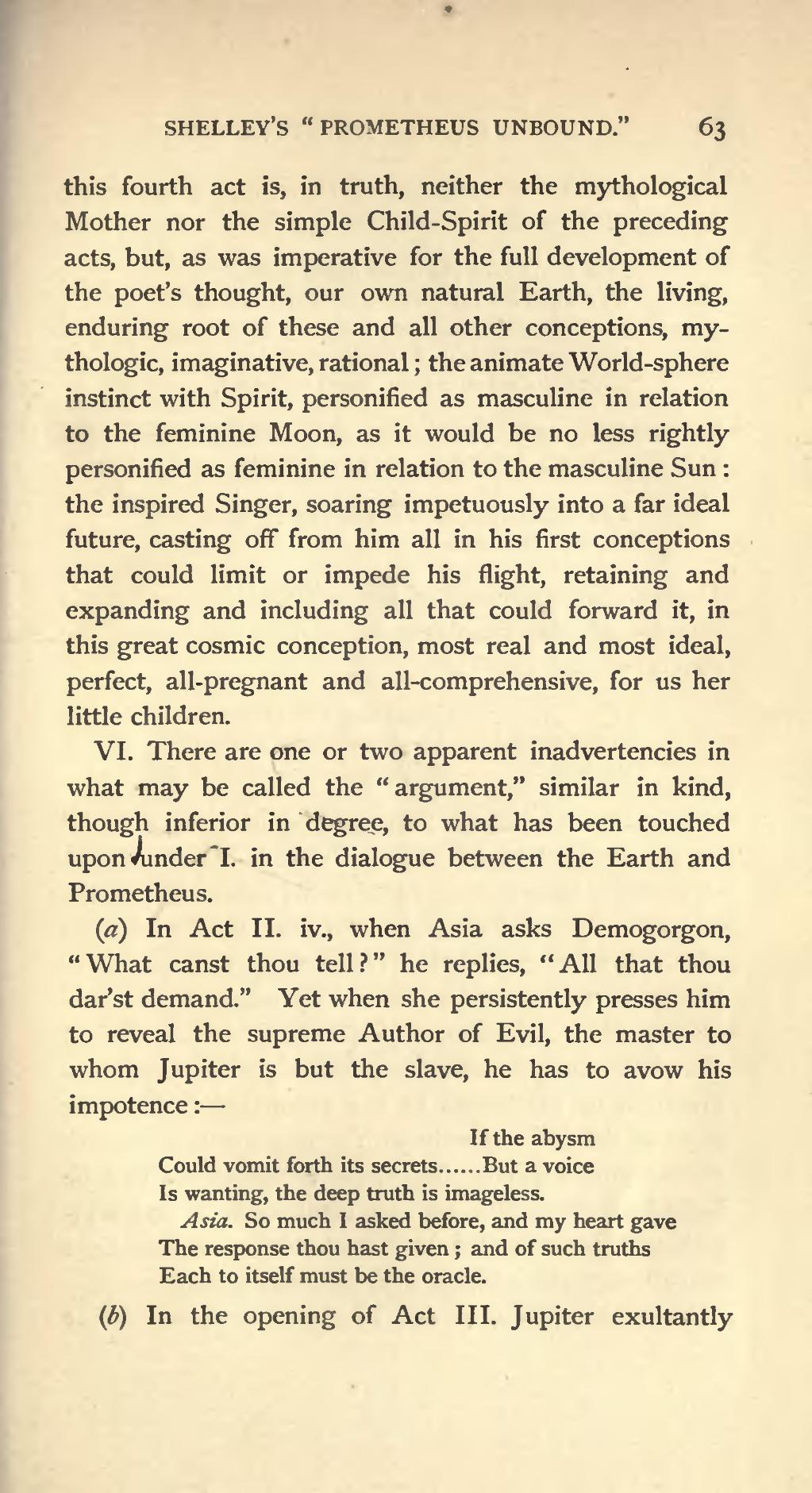this fourth act is, in truth, neither the mythological Mother nor the simple Child-Spirit of the preceding acts, but, as was imperative for the full development of the poet's thought, our own natural Earth, the living, enduring root of these and all other conceptions, mythologic, imaginative, rational; the animate World-sphere instinct with Spirit, personified as masculine in relation to the feminine Moon, as it would be no less rightly personified as feminine in relation to the masculine Sun: the inspired Singer, soaring impetuously into a far ideal future, casting off from him all in his first conceptions that could limit or impede his flight, retaining and expanding and including all that could forward it, in this great cosmic conception, most real and most ideal, perfect, all-pregnant and all-comprehensive, for us her little children.
VI. There are one or two apparent inadvertencies in what may be called the "argument," similar in kind, though inferior in degree, to what has been touched upon under I. in the dialogue between the Earth and Prometheus.
(a) In Act II. iv., when Asia asks Demogorgon, "What canst thou tell?" he replies, "All that thou dar'st demand." Yet when she persistently presses him to reveal the supreme Author of Evil, the master to whom Jupiter is but the slave, he has to avow his impotence:—
If the abysm
Could vomit forth its secrets......But a voice
Is wanting, the deep truth is imageless.
Asia. So much I asked before, and my heart gave
The response thou hast given; and of such truths
Each to itself must be the oracle.
(b) In the opening of Act III. Jupiter exultantly
